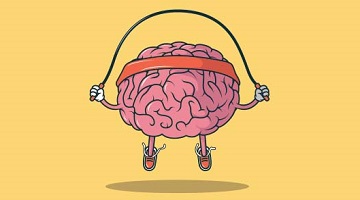Course modules
What you will study on this degree
Further guidance on modules
Modules are designated core or optional in accordance with professional body requirements, as applicable, and LJMU’s Academic Framework Regulations. Whilst you are required to study core modules, optional modules provide you with an element of choice. Their availability may vary and will be subject to meeting minimum student numbers.
Where changes to modules are necessary these will be communicated as appropriate.
Core modules
Personal and Academic Development
20 credits
20 credits
Counselling Skills
20 credits
20 credits
Counselling Theories
20 credits
20 credits
Introduction to Research
20 credits
20 credits
Developing Counselling Skills in Clinical Practice
20 credits
20 credits
Developmental Psychology
20 credits
20 credits
Core modules
Continuing Personal Development and Professional Practice
20 credits
20 credits
Cognitive Behavioural Therapy
20 credits
20 credits
Models of Practice
20 credits
20 credits
Research Methods in Counselling
20 credits
20 credits
Psychosocial Approaches to Abnormal Health Conditions
20 credits
20 credits
Aims: To examine the concept of mind in relation to various theoretical paradigms and gain an insight and understanding of how our conceptualisations of mind consciousness and self affect our experience and our interaction with others. To encourage students to consider the theoretical underpinning of their own world-views and those of others. The module seeks to make students aware of the function of the brain and scientific explanations regarding consciousness comparing and contrasting these ideas with philosophical views both ancient and modern. Students will develop an awareness of the methodologies involved and how the study of this topic is central to the very nature of who we are and how we think feel speak and behave. The theoretical ideas discussed here are examined in terms of their practical applications and to what extent these lead to therapeutic success.
Mental Health and Wellbeing
20 credits
20 credits
Tuition fees and funding
Entry requirements
Please choose your qualifications below to view requirements
Grades/points required from qualifications:
Work out how many UCAS points your qualifications are worth by visiting the UCAS Tariff Calculator.
Qualification requirements
A levels
All students will be interviewed for their suitability for the programme. Level 3 Counselling Access to Higher Education Diploma - 60 credits, of which at least of which at least 45 must be achieved at level 3 (from 2010, with merit) and with an appropriate combination of modules Access to Higher Education Diploma & modular achievement with 24 credits at level 3 (from 2010, with merit) Open College level 3 qualifications (obtained in or before 2008) at 50% or above NVQ level 3 in relevant vocational areas At least 96 UCAS tariff points (45 points from AS alone; at least 40 points should be obtained from A2s, AVCE, GNVQ Advanced or Scottish Highers) 96 UCAS tariff points for Sept 2017 Entry. Relevant work experience/ professional qualifications All students will be required to have a current Disclosure and Barring Service (DBS) certificate All students will require 2 hours per week paid or voluntary work in a relevant counselling setting (100 hours over the 2 years)
How to apply
Securing your place at LJMU
Your university life
From accommodation and academic support to clubs and societies. Find out what LJMU has to offer.
Related Links
Talk to our students
Connect with a current LJMU student for advice and guidance on university life, courses and more.
See what our students are saying
At LJMU we want you to know you're making the right choice by studying with us. You can see what our students are saying about their experience with us through their reviews on the following websites:
Related Links
News and views
Browse through the latest news and stories from the university

.png)








The university reserves the right to withdraw or make alterations to a course and facilities if necessary; this may be because such changes are deemed to be beneficial to students, are minor in nature and unlikely to impact negatively upon students or become necessary due to circumstances beyond the control of the university. Where this does happen, the university operates a policy of consultation, advice and support to all enrolled students affected by the proposed change to their course or module.
Further information on the terms and conditions of any offer made, our admissions policy and the complaints and appeals process.















